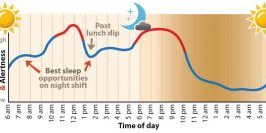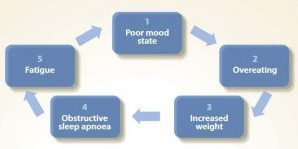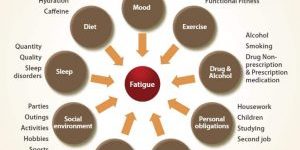Managing mental health with your lifestyle
Should burning fat kilojoules be my goal?
NO – burning energy whatever its source should be the major goal of exercise when trying to lose body fat. The reason is that 37,000 kilojoules of energy equals one……
Why is fatigue a problem?
The consequences of fatigue are unpredictable. They can range in severity and should not be taken lightly. The simple act of falling asleep may result in something as harmless as……
Mental illness. Causes and treatments
Causes of mood disorders The cause of stress, anxiety or depression is often difficult to determine and is usually a combination of social, situational and personal factors. Social factors may……
Is shift work detrimental to health?
There is a body of evidence that supports the statement that shift work can detrimentally impact on health, as well as, other factors that impact on human wellbeing and safety……
Sleep Disorders
It is estimated that 6% of the population suffer from sleep disorders. Sleep disorders may make some health conditions worse such as, heartburn, depression, asthma and heart disease. Sleep disorders……
What causes fatigue?
Fatigue is caused by a range of different factors. It is usually not just one factor but a combination of factors that will explain someone’s fatigue. Being able to characterise……
Energy requirements & fatigue
Eating too much food will provide more energy than we need for metabolic and activity needs, leaving the extra energy stores as body fat (weight). The greater your body weight,……
When should I sleep?
Our levels of alertness and attention are influenced by our circadian rhythms, as shown in the figure below. Circadian rhythms allow us to feel more alert during the day and……
Managing mental health and fatigue
When trying to establish the cause of an individual’s fatigue, it is easy to get caught up in the end point, or symptoms, of fatigue. However, start digging a little……
What can you do to manage fatigue?
Taking action against fatigue happens in two forms: 1) the action you take when you experience fatigue; and 2) the action you take to prevent fatigue and therefore become more……










